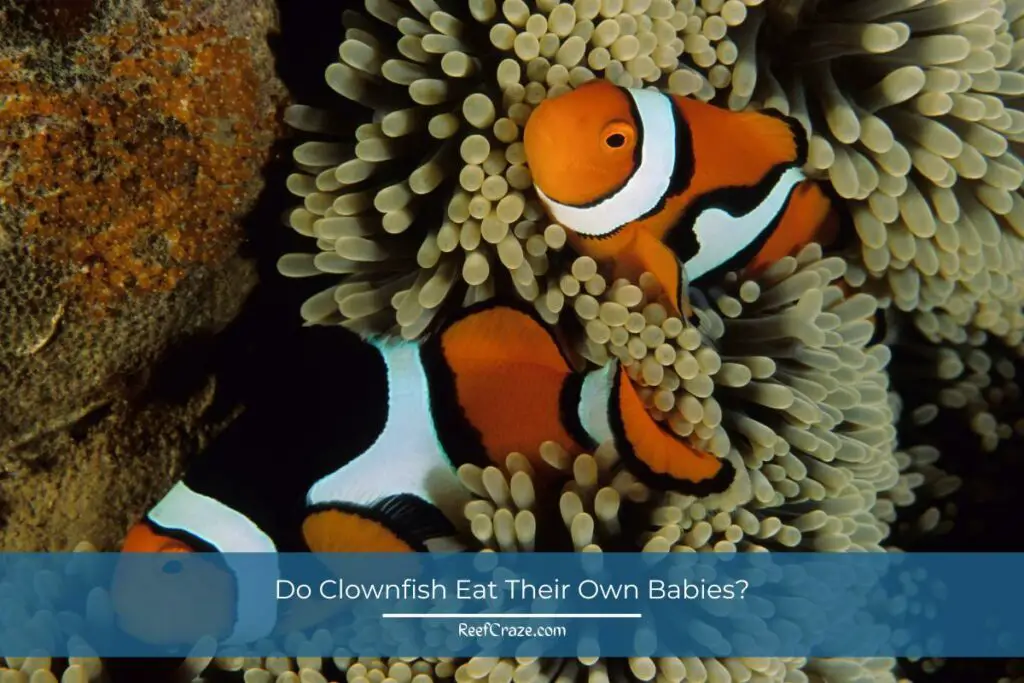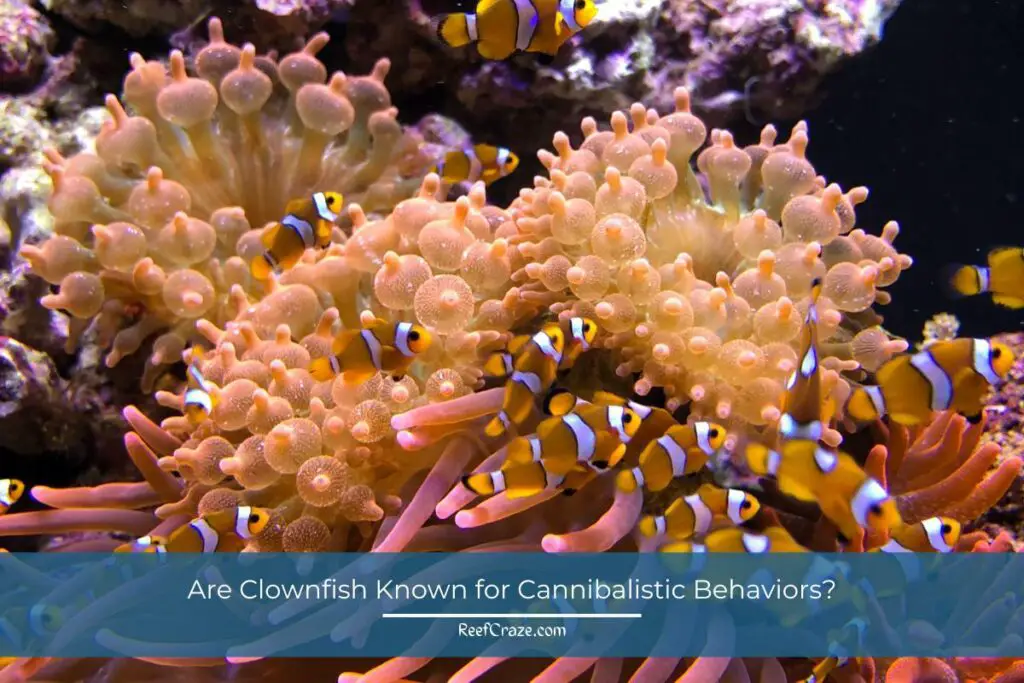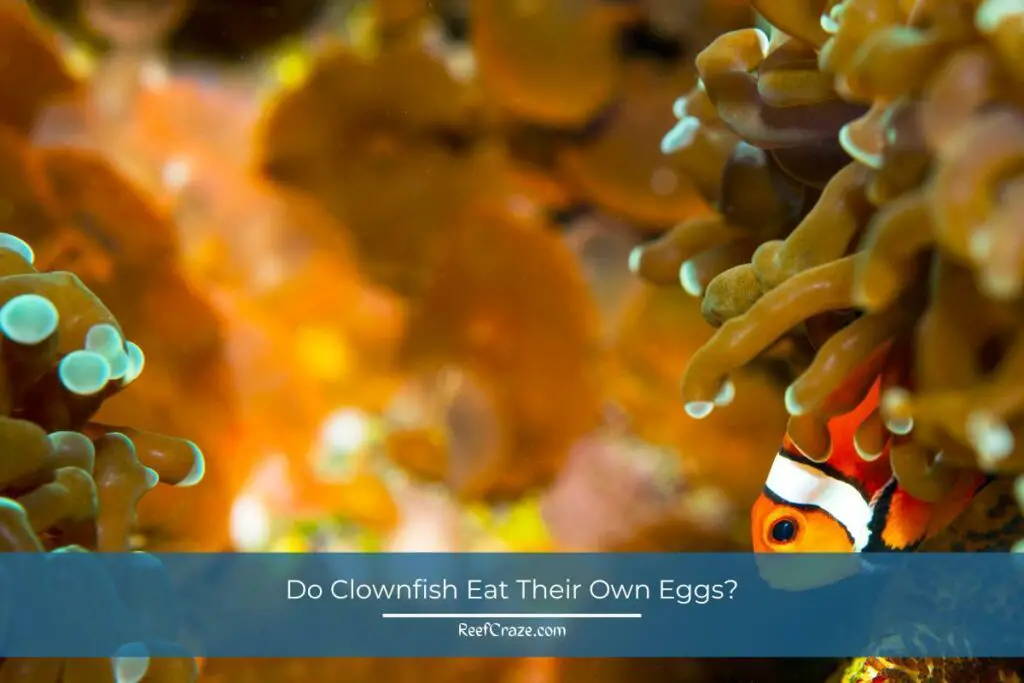Renowned for their vibrant hues and famous role in pop culture, Clownfish are a true marvel of the marine world. These omnivorous creatures inhabit the coral reefs of the Pacific and Indian Oceans, maintaining a fascinating symbiotic relationship with sea anemones. A study published in PLOS ONE journal reveals that there are about 30 known species of Clownfish, each with unique traits and adaptations.
Despite their popularity, misconceptions abound about the dietary habits of Clownfish. One of the more intriguing queries raised is whether Clownfish consume their own offspring, an act termed as filial cannibalism in scientific jargon. While it might seem improbable, certain animal species do resort to such practices under extreme conditions.
However, according to research from James Cook University, Clownfish, with their hierarchical societies and abundant food sources, show no evidence of such behavior. This article provides a comprehensive look into the diet and parental habits of Clownfish, addressing the primary question head-on while also shedding light on related aspects of their behavior.

What Is the Typical Diet of Clownfish?
Generally, clownfish are omnivorous. They sustain themselves by consuming a variety of food sources that their vibrant underwater habitat provides.
In the wild, their diet is primarily composed of small zooplankton from the water column, including copepods, mysid shrimps, and tunicate larvae. Along with these, they also eat algae, supplementing their diet and providing necessary nutrients.
In contrast, captive clownfish, like those kept in aquariums, have a different dietary routine. They often consume high-protein food like shrimp and other seafood, along with commercially available fish feeds. Brine shrimp nauplii, a type of zooplankton, are commonly given to clownfish fry.
Interestingly, a study in “Marine Biology Research” highlighted that the nutrient composition of captive clownfish could vary significantly from their wild counterparts due to these dietary differences.
Read More: How to feed clownfish in captivity
Are Clownfish Known for Cannibalistic Behaviors?
Cannibalism is not unheard of in the animal kingdom, and aquatic life is no exception. However, this behavior is not commonly observed in clownfish. In their complex social structure, aggression may be shown to maintain hierarchy, but it doesn’t extend to cannibalism.
According to Dr. Sally Y. Longo of the Australian Institute of Marine Science, “clownfish societies are highly hierarchical and, while aggression is observed, cannibalism is an anomaly.” This assertion is further corroborated by various field studies and observations.

Do Clownfish Eat Their Own Eggs?
Reproduction in clownfish is a fascinating process. Typically, it’s the males who take on the role of nest guardians, demonstrating strong parental behaviors. They clean the chosen nesting site, usually a flat surface close to their host anemone, and guard the laid eggs until they hatch – usually in about 6 to 10 days, depending on the species and water temperature.
Male clownfish are vigilant protectors, consistently fanning the eggs with their pectoral fins to provide necessary oxygen and keep them free from harmful algae and fungi. There is little to no evidence suggesting clownfish consume their eggs. Under certain circumstances clownfish may eat their eggs but the reasons are well justified. Instead, their behavior indicates a strong instinct to protect and ensure the next generation’s survival.

Do Clownfish Engage in Filial Cannibalism (Eating Their Babies)?
Filial cannibalism, where a parent consumes its offspring, is a rarely observed behavior in the animal kingdom and even rarer in clownfish. According to the “Journal of Experimental Marine Biology and Ecology,” filial cannibalism usually occurs in severe circumstances such as extreme food scarcity or drastic environmental stress, neither of which are common in healthy clownfish habitats.
While the aquatic world has its fair share of unpredictable events, the established social norms and parental behaviors of clownfish generally prevent filial cannibalism.
What Happens After Clownfish Babies (Fry) Are Born?
Once the clownfish eggs hatch, the fry are at a vulnerable stage. They spend their initial days drifting in the open ocean among plankton, away from the protective vicinity of the anemone. This is a perilous time for the fry, exposed to predators with little protection.
After about 8 to 12 days, post-hatch, the surviving fry settle on a new reef and begin their search for a suitable host anemone. This period is critical as they are still vulnerable to predation and the success rate can be quite low, with only a small percentage of fry making it to adulthood.
How Do Clownfish Ensure the Survival of Their Offspring?
The symbiotic relationship between clownfish and sea anemones is one of nature’s fascinating phenomena. In this mutually beneficial relationship, clownfish receive protection from predators who dare not venture close to the stinging tentacles of the anemone. In return, clownfish drive off polyp-eating fish, provide food, and even help increase water circulation for the anemone.
However, when it comes to ensuring the survival of their offspring, clownfish face limitations. Once the fry are hatched and released into the water column, they are mostly on their own. As a result, only a small percentage typically survive to maturity.
How Does the Environment Impact Clownfish’s Feeding and Parental Habits?
Both the feeding and parental habits of Clownfish can be greatly influenced by their environment. A healthy coral reef ecosystem ensures a steady supply of food, while disturbances like ocean acidification and coral bleaching can limit resources and impact Clownfish’s dietary habits and their ability to reproduce.
Captive Clownfish’s dietary habits are largely controlled by human caretakers, and their parenting behaviors may alter due to the absence of natural predators. However, their fundamental behaviors, like the male’s role in caring for the eggs, remain consistent across environments.
Are There Exceptions to Clownfish’s Typical Behavior?
Clownfish behavior generally remains consistent, given their rigid social structure and specific ecological role. However, exceptional behavior could surface during times of extreme food scarcity or severe environmental stress. As emphasized by marine biologists, such instances are rare and should not be considered typical behavior.
Conclusion
Navigating through the complex behavioral patterns of Clownfish, we have uncovered that these intriguing marine creatures, contrary to some misconceptions, do not engage in cannibalism or filial cannibalism. Their social structure, dietary habits, and relationship with their offspring are testament to their adaptability and resilience in the marine world.
Understanding these behaviors helps us appreciate Clownfish’s crucial role in maintaining the health of coral reef ecosystems. It also emphasizes the need to protect these delicate habitats, ensuring the continued survival and growth of these fascinating creatures.

